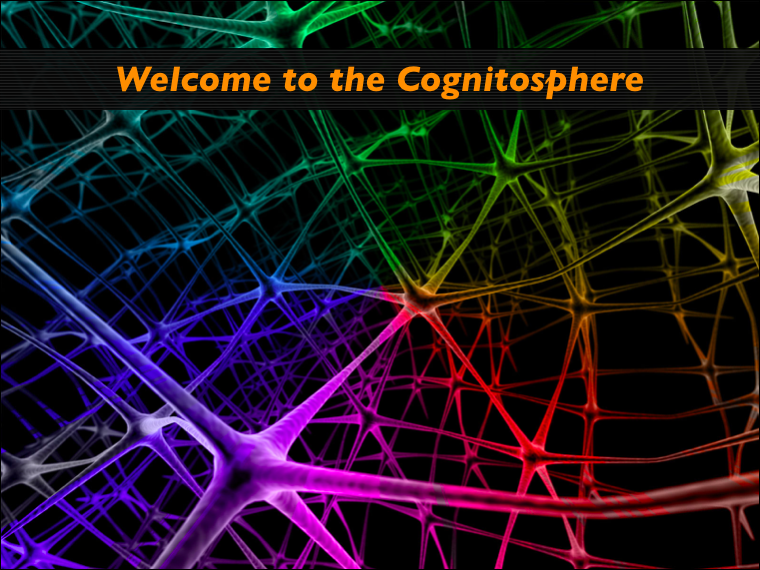 As we have noted over the past nine weeks, some organizations innovate because they want to and some because they have to. Head Jack Hall of the Walker School in Marietta, just north of Atlanta, gave me some history of their planning process. “In the 1980’s and 1990’s, Walker had become a highly selective school, and I think we had developed a level of comfort. We did not want to become complacent.” The school went through a strategic planning process and realized that there were some areas where they could be more innovative and do a better job of telling the story of the powerful learning experience they offer. Last year they hired a marketing firm to help them drill down on the key value of Walker. The faculty submitted over 80 stories about what they think of as unique and powerful in what they do, and these were boiled down into a short vision document they call their Promise Statement. It is an aligning document that helps guide everything from hiring to professional and program development. As we have heard from other schools, their hiring now focuses on a range of skills and attributes that go well beyond subject expertise:
As we have noted over the past nine weeks, some organizations innovate because they want to and some because they have to. Head Jack Hall of the Walker School in Marietta, just north of Atlanta, gave me some history of their planning process. “In the 1980’s and 1990’s, Walker had become a highly selective school, and I think we had developed a level of comfort. We did not want to become complacent.” The school went through a strategic planning process and realized that there were some areas where they could be more innovative and do a better job of telling the story of the powerful learning experience they offer. Last year they hired a marketing firm to help them drill down on the key value of Walker. The faculty submitted over 80 stories about what they think of as unique and powerful in what they do, and these were boiled down into a short vision document they call their Promise Statement. It is an aligning document that helps guide everything from hiring to professional and program development. As we have heard from other schools, their hiring now focuses on a range of skills and attributes that go well beyond subject expertise:
- Evidence of creativity
- Comfort with a student-centered teaching approach
- Desire to be a faculty leader
- Ability to build something new that drives innovation
 The Upper School has created a Practices of Effective Teaching Committee that is now tasked with running all of their faculty meetings. They no longer discuss operational issues at these meetings which are dedicated to sharing and promoting teaching best practices, reports from faculty who have attended conferences, or discussion of joint reading. “Teachers here pressure themselves. We ask ‘how can I do things better’”.
The Upper School has created a Practices of Effective Teaching Committee that is now tasked with running all of their faculty meetings. They no longer discuss operational issues at these meetings which are dedicated to sharing and promoting teaching best practices, reports from faculty who have attended conferences, or discussion of joint reading. “Teachers here pressure themselves. We ask ‘how can I do things better’”.
Several Upper and Middle School teachers are pushing the impacts of flipped classes.
- “I expect the students to put forth the initial cognitive work at home so our in-class discussions are richer. This gives them the opportunity to work their brains ahead of time.”
- “50 minute lectures, even with breaks, just are not effective. Kids are either bored or lost depending on how they relate to the speed at which we are moving. With access to the content at home they are ready; they don’t expect me to deliver the material to them in class. When we come to class, I can have groups immediately brainstorm questions and work them together on the board.”
Walker has a unique association as the only area school with an interning opportunity with the Atlanta-based Centers for Disease Control (CDC). They have created a two-year program so juniors can take a course in epidemiology and then do a senior project that includes a four-week internship at CDC. Their yearlong research is guided by CDC mentors as well as Walker science faculty. Students then submit in a competition, and present at a year-end event to both internal and external audiences. Several students have been invited back to CDC after graduation, and starting this year the research results will be submitted to a peer-reviewed journal dedicated to high school-level research.
 The Walker Lower School is becoming a nexus of innovation with the hiring this year of Megan Howard as principal. Megan is well known in the Atlanta area as a forward-leaning educator and effective change agent. Megan walks the halls and pokes into classrooms on continuous rounds each day, and her faculty is enthusiastically poised to shift the learning experience, even at the youngest age levels. She toured me through the school, interrupted every few steps by charging, smiling little people who wanted to get in a hug. On the back walkways the students showed off the homemade sidewalk chalk they had created and proudly told us why it was better than what you can buy in a store: “Our is fatter and brighter!”
The Walker Lower School is becoming a nexus of innovation with the hiring this year of Megan Howard as principal. Megan is well known in the Atlanta area as a forward-leaning educator and effective change agent. Megan walks the halls and pokes into classrooms on continuous rounds each day, and her faculty is enthusiastically poised to shift the learning experience, even at the youngest age levels. She toured me through the school, interrupted every few steps by charging, smiling little people who wanted to get in a hug. On the back walkways the students showed off the homemade sidewalk chalk they had created and proudly told us why it was better than what you can buy in a store: “Our is fatter and brighter!”
At the end of the day, and at the end of a session in which I spoke with the Lower School faculty about my journey, Megan read a short section out of my book, The Falconer. Sometimes even I forget what lies at the core of why we need to shift our approach to learning, and I still can’t say it any better than this:
“Truly great teachers, in the classroom, on the playing field, at home, or in business, all share one common strategy. They serve up their subject in such a way that I, the student sitting in their classroom, their locker room, or their boardroom, feel a personal stake in learning what it is that they are trying to teach me. I need to know the answers to questions that are raised.
The excitement of learning, the compelling personal drive to take one more step on the path towards wisdom, comes when we try to solve a problem we want to solve, when we see a challenge and say, yes, I can meet it. Great teachers lead us just far enough down a path so we can see a challenge for ourselves. They provide us just enough insight so we can work toward a solution that makes us, makes me want to jump up and shout out the solution to the world, makes me want to step to the next higher level. Great teachers somehow make us want to ask the questions that they want us to answer, overcome the challenge that they, because they are our teacher, believe we need to overcome.”




Leave A Comment